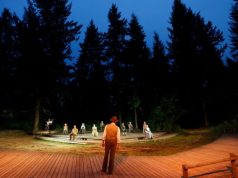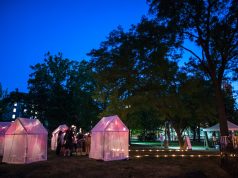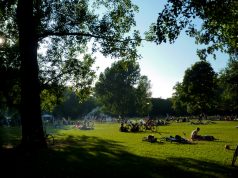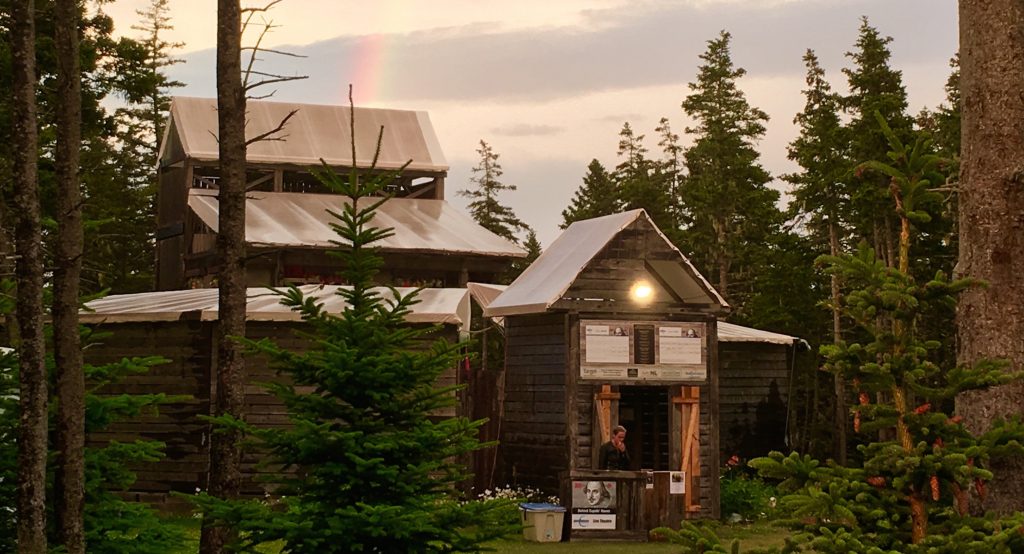
I am sitting in the woods, overlooking the ocean on the East coast of Canada’s eastern most province, in the tiny community of Cupids, Newfoundland Labrador (population 790).
There is wind, fresh off the ocean that blows through the trees that surround our Elizabethan inspired theatre.
Yep, I said it, Elizabethan-inspired theatre. In a rural area of a remote province nowhere near a major theatrical hub where you may expect to find such an oddity.
At first glance it is not exactly a match to pair Shakespeare and rural Newfoundland.
What has always drawn me to Shakespeare has been my love of language and the power of words. Words have a specific taste in your mouth, they sum up a feeling in your gut, words capture your inner most feelings and can become weapons or tools depending on how you wield them.
Growing up in Newfoundland, you are surrounded by storytellers, debaters and “characters” (what we call folks who really stand out). This is a place where language has a musicality, where telling a story is still part of many family gatherings, where everyone has an opinion and is not afraid to debate it. This is a place where people still say “ye” and “hark” and have turns of phrase that are strange to the ears of “come from aways”.
Founded in 1610, at the height of Shakespeare’s reign of the London stage, Cupids was the first colony in what would become Canada – the second founded in North America. Those first settlers, in all likelihood, could have seen one of Shakespeare’s plays before sailing over. They carried with them, along with their dreams of starting a new world, the seeds of a language and culture that came straight out of Shakespeare’s time.
What followed were hundreds of years of isolation that kept a bubble around our language, as not until the 1960’s was there an influx of TVs, better roads and travel. It has been the focus of great study at the linguistics department at our university as you can literally hear the bridge between the old world and the new in the older generation of outport Newfoundlander.
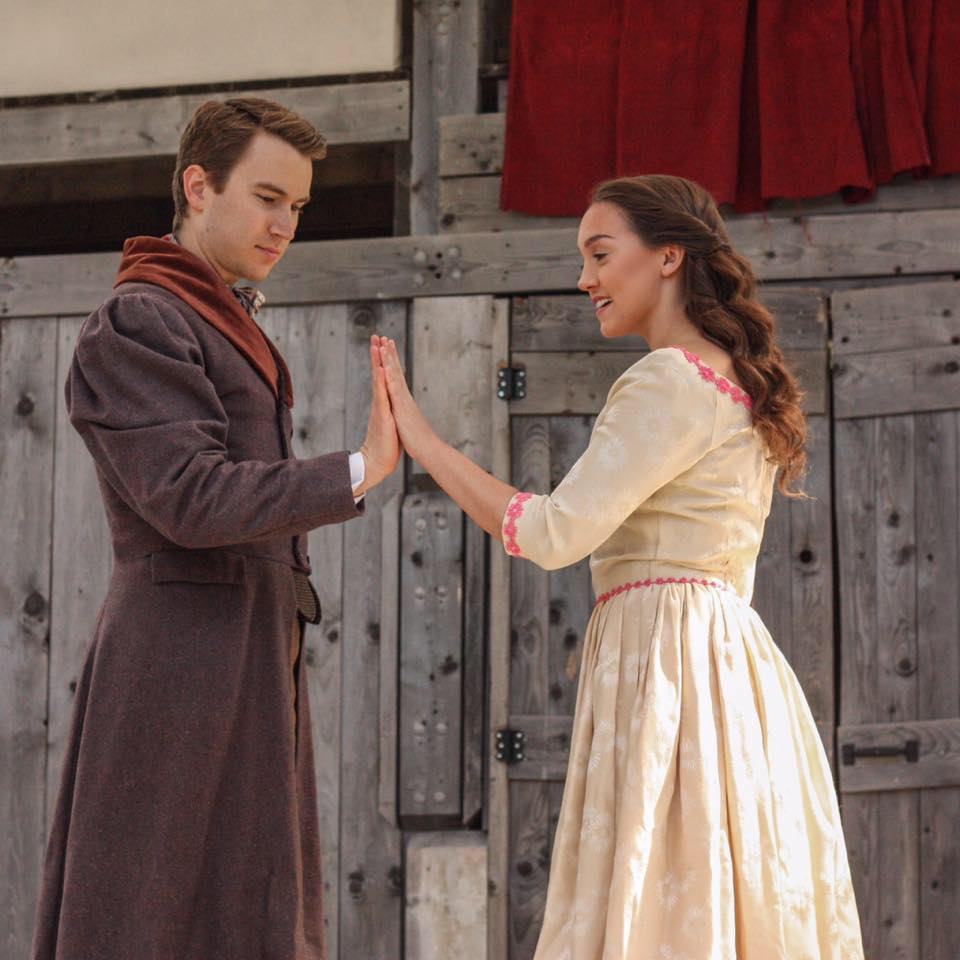
As a young artist, I was fascinated with the idea of allowing our NL accent to inform the Shakespearean text I was working with and found that it rolled naturally to my ear. In recent years, upon hearing Ben and David Crystal do their version of original pronunciation, it almost caused me to leap from my seat – as it sounded like home to me.
Now, not all Newfoundland accents are the same. To my grandfather’s generation – if you speak they can tell not only what bay you are from, but also what community; there are so many different accents. If you go to the Southern shore, you will hear the Irish accent, if you go to the West coast it is French, if you go Northeast, it is British. But all of them are old versions of accents that have grown and changed in their home countries. In the Dialect Atlas of Newfoundland and Labrador, you can click and hear these amazing sounds!
Allowing Shakespeare’s text to flow through our own voices in their natural cadences has been liberating for the artists and exhilarating for the audiences. People keep exclaiming about how easy it is to understand the text, how clear the story is, how the jokes really pop.
Now, I know that is also due to our rigorous text work and professionalism that we use to thoroughly explore the text and embody the story.
That accent, however, is the cherry on top of a layered and dense, flavourful cake – one that people are devouring in greater numbers. People, who had never thought of taking in a play, let alone Shakespeare, are coming to our theatre. They may be trepidacious upon entering but upon leaving they are shocked and excited to discover they like both theatre and Shakespeare.
These words, these characters, these stories are big on imagination, deep in meaning and resoundingly human. Our simple stage, surrounded by trees, with its breeze off the ocean lifting the sails over our heads is humble. But it is full of pioneering artists, forging a company that will draw folks from all over. A modern day echo of the pioneers forging a community that would become a toehold in the new world.
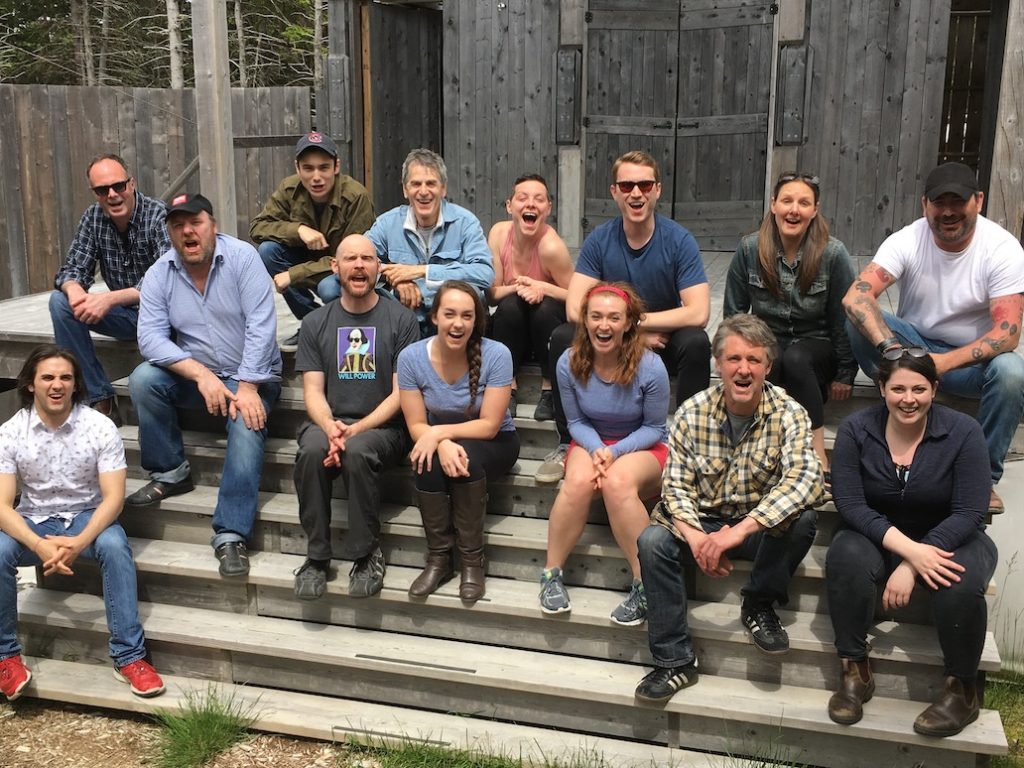
It is not easy. Raising money for theatre in an “austerity budget” province is hard, raising money and support for theatre in a rural area where that austerity is even more keenly felt is even harder. I am not just building an awareness of the theatre; I am educating people about the role that the arts play in the economy and in how they see themselves. It is excruciating to have to justify the existence of our work when people often don’t see its value. I faced many a raised voice of those who just couldn’t see why we would be doing Shakespeare here.
That is until I got brave members of their own community up speaking and doing the text in a fundraiser. Those brave souls had never spoken Shakespeare, and were not actors but were willing to give it a try. At first they were worried about how the work sounded in their “Newfounese” as one person called it. I told them to embrace it and the audience went wild.
Shakespeare was writing about the human experience, which is why we still love these characters 400 years later. By connecting to the text in this way, I am connecting to my community and they are seeing the work so much more clearly because they can finally hear themselves. The ivory tower that these folks had built around Shakespeare has dropped away and slowly but surely our company is being embraced.
This is the lens through which I look at my work; the guiding principle for picking my shows is that love of language and my love of place and the love of our stage in the woods on the coast.






